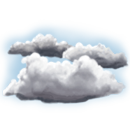
Letters: ‘Starving’ people are abusing donations
Big fancy new trucks and cars wait in mile-long queues at chapter houses/distribution centers, waiting their turn to get a box of food. “Oh, there are freebies, let’s pull over and get in line!”
The radio announcers consistently inform the public about donation locations. They constantly plead with people not to be picky about the items in the donation box, and they report that some people just throw away donation items.
These “starving” people are abusing the initiative. “Starving” people are not picky! What about the most vulnerable people — those that live in the most remote areas, without transportation, phone service, water, and power? How are they benefitting from food donations? Some of these people walk out to distribution centers and some are denied donation boxes because they don’t have a vehicle. How sad!
Navajo Nation needs a transparent and more effective equitable system to ensure that food deliveries get to these most vulnerable individual’s homes. Chapter officials — CHRs – should know their constituents and know who is “most vulnerable.”
Navajo Nation leaders have not developed emergency preparedness plans. The usual response to emergency is donate and the usual emergency plan is donate. Leaders have no plan but promote and encourage dependency, expressed by many observers.
We, Navajo Nation, it seems, have not determined the level of mitigation needed to control the transmission of COVID-19. There is no surveillance. The message “stay home” does not help a person who tests positive and then be directed to go home and self-isolate.
Some go home to “a” house with five or more members, and sometimes a one-room house. The message conveyed to the exposed person is “Go home for now, we will see you again later when you are transported in by the ambulance.”
These people need to be identified/found early, ensured that they stay out of circulation in the community (set up quarantines) and, to make sure that they get the care that they need as soon as they need it.
Remote locations need reliable phone/internet access, rural addressing, and maintained dirt roads to speed up emergency response, PPE, access to quality health care and access to accurate information.
Some people have their family/neighbors run to the chapter house to call for emergency help. Some are fortunate enough to have access to TV, hear a daily report on COVID-19 numbers (how many positives…) and, others rely on the radio.
The Navajo Nation lockdown, what a joke! While some people have to report to work Monday through Friday, others are choosing to drive around, congregate, ignore precautions, and keep spreading the virus. Roads are busy Monday through Friday, and yes, Saturday and Sunday, too, but when the stay-at-home order violators get sick and infect others, they demand public resources and burden the health care providers and everyone.
The real problem is that right now Navajo Nation leaders/officials are busy smiling at the cameras and handing out donations at a chapter house instead of working on a robust system to stop the deadly virus spread. They should be working on tribal empowerment.
It is election time, some Navajo Nation career politicians are busy crafting their standard stump speeches, pandering empty but appealing promises (veterans, elders, health care, housing, etc.), in order to further their political aspirations.
Marilyn Decker
Nazlini, Ariz.
Re-open Navajo casino 100 percent smoke-free
Today, American Indians and Alaskan Natives have the highest cigarette use of any other racial groups in the United States, with 1 in 3 who smoke cigarettes.
COVID-19 pandemic has given all of us a new perspective on our health and how our environment in which we live, play, and work are important. We may not think much about the use of cigarettes or even the exposure to secondhand smoke (SHS) unless you work or visit an environment such as our Navajo casinos.
What the general public may not know is that SHS contains more than 7,000 chemicals, including 70 cancer-causing chemicals that linger throughout the casino floor. SHS contributes to approximately 41,000 deaths among “non-smoking adults” each year in the U.S.
Furthermore, SHS causes cancer, diabetes, emphysema, asthma, chronic obstructive pulmonary disease, and other diseases among our people. Yet, many of our Navajo and non-Navajo workers continue to work in our Navajo casinos that is unhealthy due to the deadly impacts of SHS exposure.
By creating a 100 percent smoke-free environment, workers and visitors are protected from many of these diseases. Therefore, we encourage our Navajo leaders and Navajo gaming to consider re-opening all Navajo casinos 100 percent smoke free. As Navajo people we believe every breath is sacred.
Ahéhee!
Hershel Walker Clark
Teesto, Ariz.







 Highway 264,
Highway 264, I-40, WB @ Winslow
I-40, WB @ Winslow